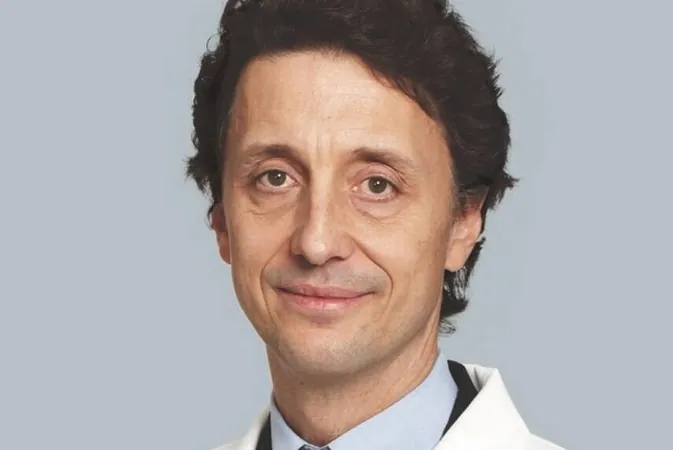
Breakthrough Study Reveals One Dose of HPV Vaccine Matches Effectiveness of Two in Cervical Cancer Prevention!
2024-10-09
Author: Jacob
Introduction
Recent groundbreaking research has uncovered that a single dose of the human papillomavirus (HPV) vaccine is just as effective in preventing cervical cancer as the traditional two or three-dose regimens. This illuminating study, published in the Canadian Medical Association Journal (CMAJ), emphasizes the potential for a significant shift in public health strategy in Canada and beyond.
Key Findings
Experts involved in the study noted that the data supporting this conclusion is particularly robust for individuals aged nine to 20. Dr. Chantal Sauvageau, a public health physician and co-author of the study, stated, “Our findings indicate that a one-dose vaccine schedule could yield the same protective impact against infections and cancers as two or three doses, making it a more efficient approach to vaccination.”
NACI Recommendations
In an exciting update, the National Advisory Committee on Immunization (NACI) recently recommended the one-dose Gardasil-9 vaccine for Canadians aged nine to 20. This decision represents a transformative change from the previously advised two-dose regimen for this age group. For adults aged 21 and up, the guidelines now suggest two doses of Gardasil-9, a reduction from the earlier recommendation of three doses, administered six months apart.
Special Considerations
For those aged nine and older who are immunocompromised or living with HIV, the three-dose schedule remains the standard. Gardasil-9 continues to be the vaccine of choice in Canada, offering protection against the largest variety of HPV types and the diseases they cause.
Global Monitoring and Recommendations
The NACI will actively monitor ongoing evidence regarding the one-dose schedule from clinical trials and data from other countries utilizing similar vaccination strategies, such as the UK and Australia. The global health community is aligned, as the World Health Organization also advocates for one or two doses for younger individuals and a two-dose regimen for those above 21, reflecting a convergence of best practices.
Future Implications
While current research primarily supports one-dose regimens for younger populations, there are hints that the HPV vaccine may also benefit those older than 20, although more data is needed before any recommendations can be made.
Public Health Impact
The implications of reducing the required doses are significant, potentially leading to increased vaccine uptake, lowered costs, and a more efficient use of clinical resources—freeing healthcare professionals to focus on other vital aspects of public health. The success of Australia in implementing similar changes last year serves as a hopeful model for Canada.
HPV Statistics
HPV is among the most prevalent sexually transmitted infections in Canada, with estimates suggesting that up to 75% of sexually active adults will contract the virus at some point. The World Health Organization has identified HPV as the primary cause of cervical cancer, especially when infections linger, though most cases resolve without symptoms.
Conclusion
In the context of Canadian health statistics, there were 1,730 new cervical cancer diagnoses and 760 deaths attributed to the disease in 2022. Dr. Sauvageau asserts that the HPV vaccine stands out as one of the most effective vaccines available, boasting an impressive efficacy rate of 95%. She emphasizes, “Even in our most conservative projections, the elimination of cervical cancer remains within our reach if we achieve widespread vaccine coverage. The effectiveness of these vaccines cannot be overstated.” This new research marks a pivotal moment in public health, suggesting that simplifying HPV vaccination could lead to greater accessibility and lower costs, whilst maintaining high levels of protection against cervical cancer. Stay informed and proactive about your health—could this be a game-changer in the fight against cancer?









 Brasil (PT)
Brasil (PT)
 Canada (EN)
Canada (EN)
 Chile (ES)
Chile (ES)
 España (ES)
España (ES)
 France (FR)
France (FR)
 Hong Kong (EN)
Hong Kong (EN)
 Italia (IT)
Italia (IT)
 日本 (JA)
日本 (JA)
 Magyarország (HU)
Magyarország (HU)
 Norge (NO)
Norge (NO)
 Polska (PL)
Polska (PL)
 Schweiz (DE)
Schweiz (DE)
 Singapore (EN)
Singapore (EN)
 Sverige (SV)
Sverige (SV)
 Suomi (FI)
Suomi (FI)
 Türkiye (TR)
Türkiye (TR)